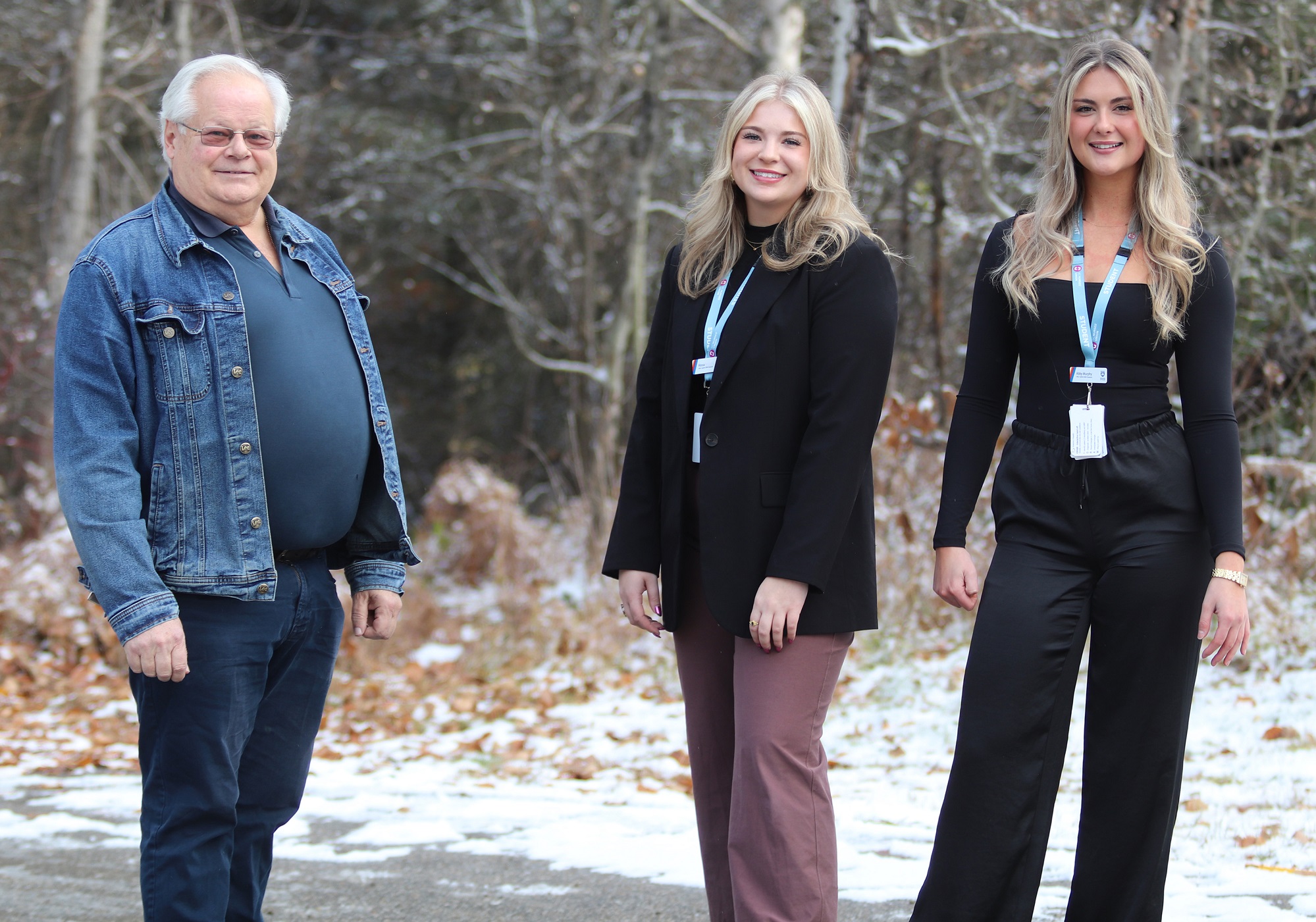Selkirk College nursing students tackle homelessness/toxic drug use while learning
With end of their formal post-secondary learning fast approaching, students in Selkirk College’s Bachelor of Science in Nursing Program presented a myriad of leadership projects that paint a promising picture for future careers in health care.
A mainstay of the Selkirk College academic calendar, 22 students in the second last semester of their four-year program took part in the Nursing Student Leadership Conference in early-December. The product of months of diligent work both in the field and pouring over research, 11 diverse projects were presented to peers, field guides,
faculty and the broader community.
“The scope of projects and dedication to their field of study is very impressive,” says Jocelyn Schroeder, chair of the School of Health & Human Services and instructor in the nursing program. “The leadership projects allow students to really dig deeper into specific areas and better understand issues they will be experiencing in their career. By challenging themselves with some very relevant topics at this stage of their education, they prove they are ready for the important work that awaits beyond graduation in the spring.”
The leadership conference showcases student outcomes across three integrated courses—Nursing Research, Leadership in Nursing and Nursing Practice. The projects represent current and critical issues in health care, providing the foundation for ongoing program development and service provision in variety of practice areas.
Held at the Castlegar Campus, students presented projects that ranged from workplace health promotion and adolescent sexual health education to unlearning anti-fat bias and access to health care by Indigenous populations.
Issues that Impact Community Health
The toxic drug crisis and rising homeless populations in rural communities was the focus of a number of projects, including a pertinent presentation by Abby Murphy and Alyssa Welychko who worked with the Castlegar Fire Department on enhancing first responder skills and building trust with marginalized groups. Rising out of experiences both had while working in the Student Outreach Street Nursing Program in both Nelson and Trail
during their third year of studies, the pair researched and put together a presentation for members of the department.
“We received a lot of insight from individuals in both Nelson and Trail about how they felt it was for them to access the health care system,” says Welychko, who grew up in Castlegar. “It starts at the first responders’ level where they told us how vulnerable they felt and what stigmatization they experienced. We wanted to look into the best ways to
tackle that during the initial interaction such as first responders, so we can then look at ways at making it better through the entire system.”
Initial research indicated that more training in the area of empathy, biases and stigma could benefit both those needing the help and those providing it. With calls dramatically on the rise, helping guard against first responder burnout while delivering the care on the frontlines of the crisis, starts with education.
To help build relationships with the department, Murphy and Welychko worked with field guide Gerry Rempel who served as the Castlegar Fire Department’s chief for 26 years and currently holds the position of fire chaplain. An Elder on Campus with the college’s Indigenous Services Department, Rempel was heartened by the student’s
approach that included data collection from within the department, a thorough literature review, and a well-received final presentation/simulation to the entire department of paid and volunteer members.
“To bring such important research and present it to the department, it has a big impact,” says Rempel. “This will make a difference for the fire service and all first responders. It’s needed and I was very happy to be working with them.”
Recognizing the excellent work and foundation now provided on such a critical issue within the health care system, Murphy and Welychko’s project has become a legacy to be built upon by future students who will have the opportunity to further push the outcomes forward for next year’s leadership component of their education. Both students will now spend their final semester on practicums at the Trail Regional Hospital. As they work towards graduation in the spring, Murphy and Welychko agree that they are well prepared to embark on fulfilling careers in health care.
“When you go into that first year of the nursing program, you are focused on the biomedical skills and hospital care,” says Murphy, who came to study at Selkirk College from Kamloops. “Then all these other great areas of nursing come to life. One of the best parts of a four-year program is that it really considers relational practice, bedside manner and communicating with diverse folks. There has been so much great learning that I didn’t consider in year-one, I am very grateful for my education.”
Applications for the September 2024 intake of the Bachelor of Science in Nursing Program are now open with an application deadline of January 15, 2024. You can learn more about the program at: https://selkirk.ca/programs/health-human-services/nursing-bachelor-science


























Comments